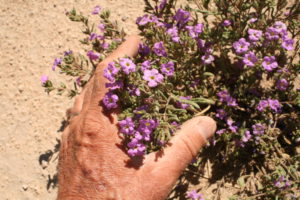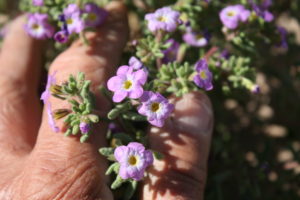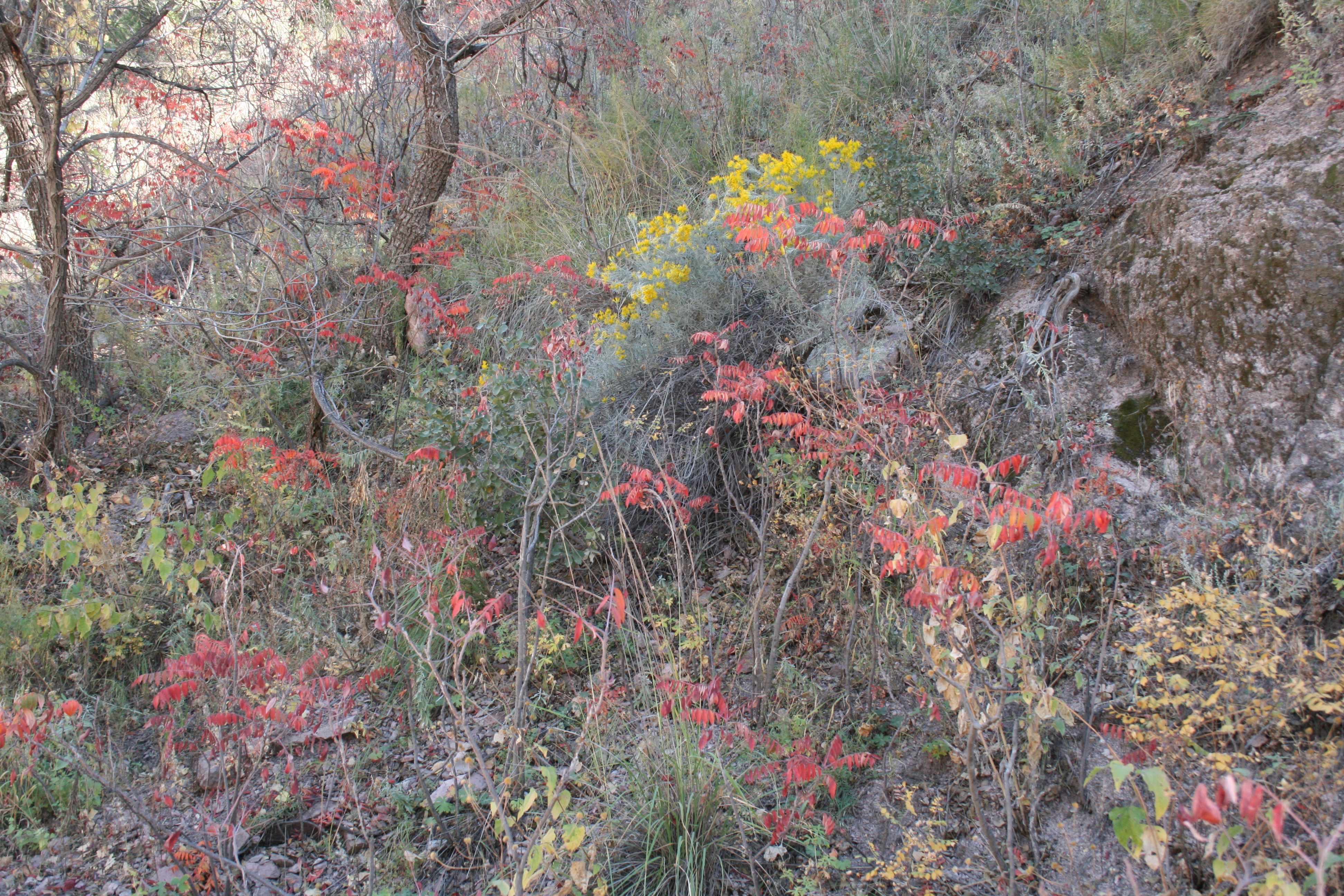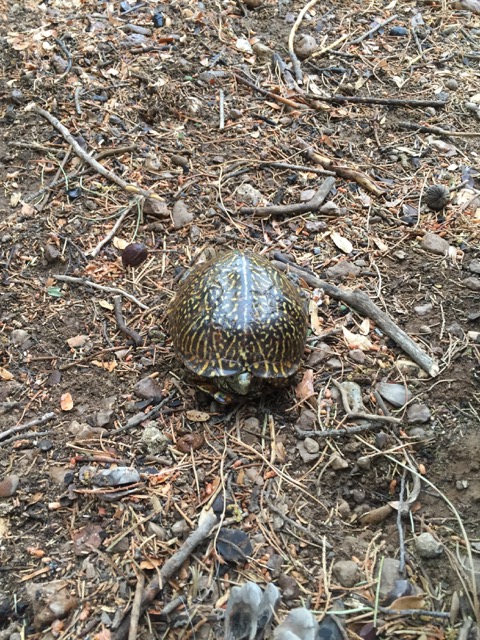
Nama hispidum is in the Waterleaf Family (Hydrophyllaceae). There are eight species of Nama found in Arizona and for those of us that live in and around the borderlands of southern Arizona we are most likely to see either N. demissum or N. hispidum. Aren’t those wonderful specific epithets? Demissum means hanging down or weak, maybe because that species is prostrate and hispidum, as I mention in the show means bristly, referring to hairy stems. I forgot to tell you that the genus Nama is from the Greek for a spring, but now I have. Oh, I found a couple common names I should share with you; Sandbells, which I’m guessing refers to the plant’s bell shaped flowers and its propensity to grow in sandy soils (see photo), and Morada, Spanish for purple and referring to the flowers. I meant to look up and see if the seed of Nama hispidum or N. demissum show up in any wildflower seed mixes. I guess that’s your assignment now and if you do find seed for these beautiful annual wildflowers in a mix or otherwise, well, nab it. You won’t regret it.
A couple notes: The photos are mine. Oh, and I think I may have messed up the “word game song”, but it was spontaneous and silly, so I left it. I do hope you didn’t spend the day singing, “Petey, Petey bo-petey, banana-fana fo-fetey…”. If so, I am very sorry.


Petey takes a drive into the hills near his home to see spectacular fall color of the local sumacs.

I thought I was through mourning the death of an old friend until an upcoming musical gig brought it all back to me. Well,...

Isn’t it wonderful to live in a region where clouds and humidity and rain are so celebrated? You can identify the natives and converted...